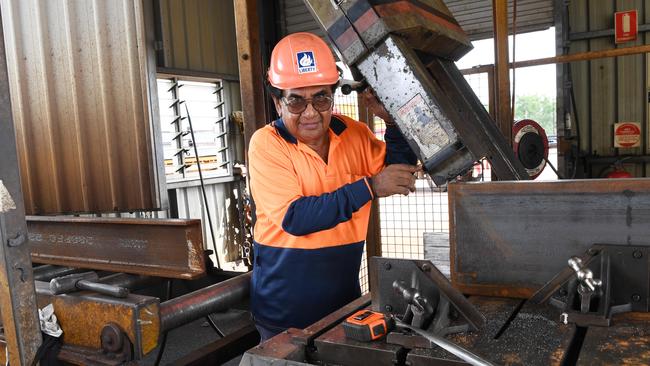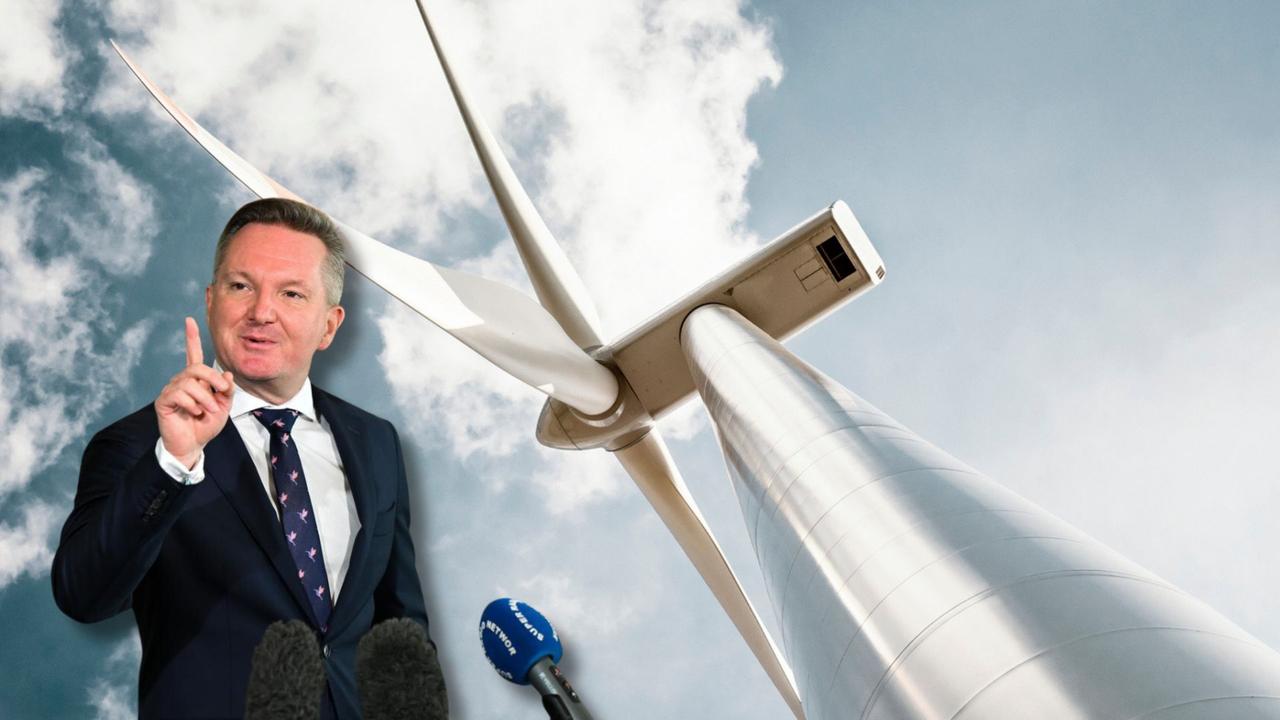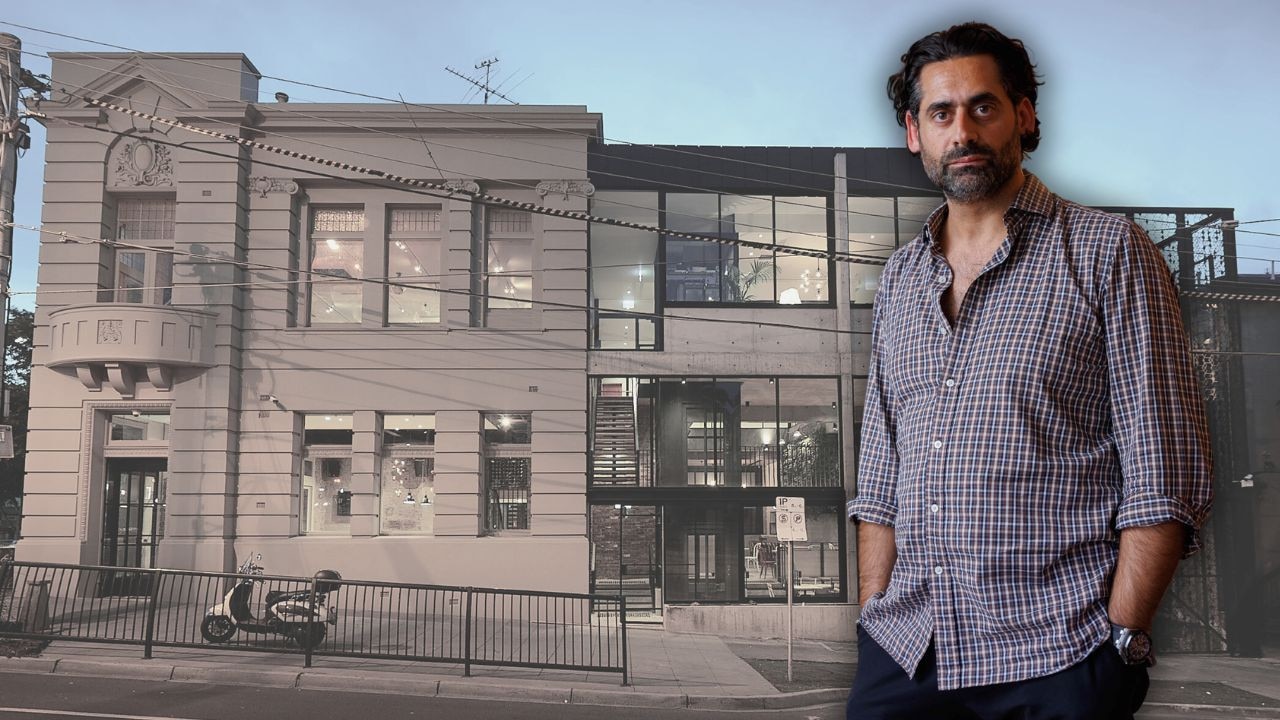Suitors circling Sanjeev Gupta’s Infrabuild
Private equity majors have begun circling Sanjeev Gupta’s Australian Infrabuild steel business, eyeing opportunities if Greensill sets the dominos falling.

Private equity majors have begun circling Sanjeev Gupta’s Australian Infrabuild steel business amid speculation the close relationship between Mr Gupta and crisis-hit finance group Greensill Capital could trigger a domino effect and put even his profitable assets in play if funding lines dry up and complex financing arrangements worth billions are called in.
While no offers are believed to have yet been put to Mr Gupta, market sources say major private equity providers have begun sharpening up pitches for his profitable Australian businesses if he is unable to find new lenders to less profitable assets - including the Whyalla steel works - and is forced into a distressed sale.
Mr Gupta acquired the bulk of his Australian assets through the acquisition of collapsed steelmaker for $700m in 2017. He has since split the business into two parts - the first, Infrabuild, the profitable electric arc furnaces, steel distribution, recycling and construction materials arm and the second the more difficult steelworks at Whyalla and associated iron ore and coking coal mines, which trades as Liberty Primary Metals.
But before Arrium’s collapse into receivership it was also being courted by major global private equity firms - including Brookfield, KKR and GSO Capital Partners - and sources say some unsuccessful private equity bidders are again sharpening the pencils over potential moves on Infrabuild if the crisis engulfing Greensill also brings down Mr Gupta’s global metals and mining ambitions.
At issue are financing arrangements between Greensill and Mr Gupta’s GFG Alliance, including a receivables purchasing agreement at GFG’s Whyalla steel works – worth $429.7m in 2019.
It is understood GFG’s arrangements through Greensill’s receivable purchase agreements typically operate as a revolving funding mechanism - each month new amounts are drawn down from Greensill against sales of GFG products, to be passed back to Greensill when customers pay up.
The Whyalla steel mill is believed to be running profitably in the current market – and GFG has been at pains to note the $429.7m receivables balance noted in the 2019 annual report has since fallen significantly.
But the loss of new advances from Greensill has left GFG in a tricky position.
Having already received pre-payment for what could be a substantial proportion its near term sales – Whyalla had total revenue of $1.52bn in the 2019 financial year, and the $429.7m drawdown shortly after the close of the year represents about 28 per cent of that total – passing on customer revenue to Greensill could put a crimp in its working capital balance.
Mr Gupta told GFG executives on a Wednesday phone hook-up that he was in talks with alternate banks amid mounting pressure to find a stopgap solution to refinance his arrangements with Greensill, and GFG failed to make one payment to Greensill on Monday, according to a Financial Times report - but it is not clear whether the payment was due from one of GFG’s Australian businesses, or from another part of his global empire.
Sources close to Mr Gupta told The Weekend Australian that may reflect a move by GFG to withhold regular payments given increasing uncertainty whether Greensill will trade its way through the current crisis, amid speculation the parts of Greensill’s business exposed to GFG will be placed in administration even if a buyer is found for the rest of the former financial services market darling.
And failing to pass on payments from Whyalla customers under the receivables purchasing agreement, or failing to pay Greensill under other supply chain financing arrangements, could allow Greensill or an administrator to seize control of Mr Gupta’s shares in Infrabuild.
Greensill took security over Mr Gupta’s shares in two companies that control the Infrabuild businesses this week, on the same day the troubled financial services group warned a NSW court its collapse could send a host of Australian and international borrowers and clients to the wall.
The security was lodged with Australian and UK regulators on Monday as Bundaberg-born Lex Greensill scrambled to save his financial services empire, and as lawyers for Greensill warned the NSW Supreme Court that “over 7000” Australian jobs were at risk if it did not intervene to force insurers to extend coverage amid a crisis engulfing the company.
Greensill’s insurers cut a $4.6bn policy this week as it grew uncomfortable over exposure to risks associated with clients of the financial services businesses - including companies associated with Mr Gupta, court documents show.
Lawyers for Mr Greensill unsuccessfully pleaded with the NSW Supreme Court to force the extension of the insurance policies, arguing their loss would trigger a chain of events that could lead to the insolvency of its clients - including a “major global resources group with significant operations based in Australia”, believed to be a reference to Mr Gupta’s GFG Alliance.
At the same time Mr Greensill was moving to protect himself from possible defaults from Mr Gupta’s Australian businesses, taking the security of Mr Gupta’s shares in Liberty Holdings Australia and Liberty Infrabuild.
Neither are believed to owe money to Greensill Capital, but documents filed in the UK show the move would allow the troubled financial services firm to seize control of the shares if other parts of Mr Gupta’s empire default on monies advanced by Greensill.
The timing of the security documents suggest they could also be a factor in the failure of Mr Gupta’s talks for new debt facilities with Brookfield - a former suitor for Arrium, and said to still be interested in the Infrabuild asset.
The fallout is also likely to cast a shadow over Mr Gupta’s long standing plans to float the business.
In a statement this week GFG said it had “adequate funding for its current needs” and that its refinancing plans to broaden its capital base and obtain longer term funding are “progressing well”.
Infrabuild employs about 4500 people across its Australian operations, after cutting about 10 per cent of its local workforce during a pandemic-fueled cost-cutting drive in 2020. Another 1500 workers are employed at Whyalla, with thousands more across its iron ore mines in South Australia, the Tahmoor colliery in NSW and the newly-acquired TEMCO manganese smelter at Bell Bay in Tasmania, bought from mining major South32 for a “nominal” sum late last year.







To join the conversation, please log in. Don't have an account? Register
Join the conversation, you are commenting as Logout